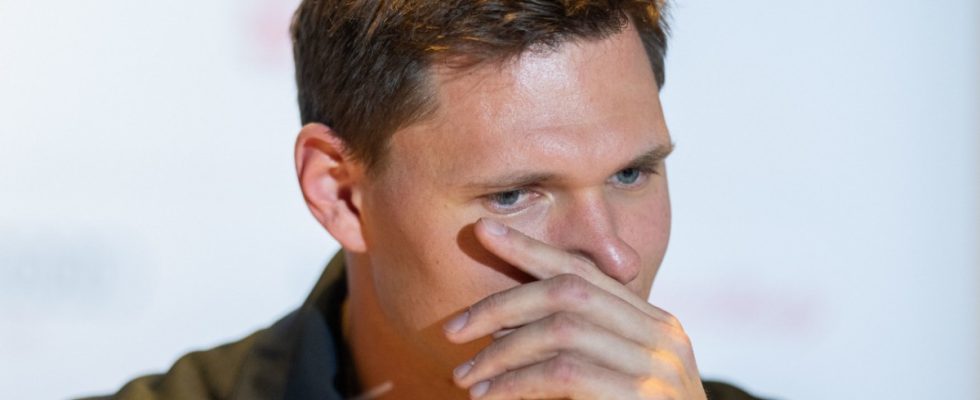Like a warrior in an unwinnable battle, he sat there, his helmet with its visor open on the table in front of him, close to giving up. Then the ski racer Thomas Dreßen began to tell the story. A week ago, he said, at the Downhill World Cup in Wengen, the decision had been made. “I actually realized while driving in Wengen that this might be my last descent,” explained the man from SC Mittenwald. Then he decided that the date for this strike should be next Saturday, on the Kitzbüheler Streif. “After that,” said Dreßen, “I will end my career.”
The German Ski Association loses the most successful downhill skier in its World Cup history. Dreßen has collected five wins, five third places and 23 entries in the top ten in a total of 79 Super-G and downhill races. Now he stops at the prime skiing age of 30. Not because he’s tired of the sport, but because his body’s signals have recently become increasingly clear. As if the entire apparatus was now holding a stop sign in front of him.
His coach also sees a point reached “where I no longer want to cross a certain limit.”
He made the decision last Sunday evening. His wife had just put his little daughter to bed. “I was alone and looked at a trip I made in 2018,” said Dreßen. “And then I realized that this was no longer possible, the frame no longer allowed this.” He always started with the aim of being competitive among the world’s best. He never really achieved this condition again following his cartilage operation in his knee after the 2021 World Ski Championships. “I will no longer sacrifice my rack to pickle after myself,” said Dreßen.
In the hall of this press conference you could only hear the click of a photographer, the 20 or so reporters had become so reverently quiet during Dreßen’s words. “We went through so much together, but it was a nice time, very nice,” said Christian Schwaiger, now the head coach and previously a close confidant of Dreßen as the downhill coach of the German men’s team, sitting next to him in a broken voice. “As a coach you also have responsibility,” said Schwaiger. He also reached a point “where I no longer want to cross a certain limit.” Dreßen’s knee continued to deteriorate.
Thomas Dreßen visibly pulled himself together. On this Thursday afternoon he was sitting in a hotel in Kirchberg, a suburb of Kitzbühel. This is exactly where he set off for Streif six years ago, in the early morning of January 20, 2018. He was considered an outsider at the time, before he won the world’s most famous ski run hours later. Yes, that was sensational – he had been an outsider for a long time . But it didn’t take long until the first major setback.
Beaver Creek, USA, November 30, 2018: Dreßen was doing well on the difficult “Birds of Prey” slope when he fell badly after a driving error: cruciate ligament rupture, total damage to his right knee, and his hip was also damaged. But: Dreßen fought, with success. A year later he came back unexpectedly strong. At the season opener in Lake Louise he promptly took his third World Cup victory and followed that with two more by the end of the season. But he is still paying the price for these successes today.
The Beaver Creek accident and what he later admitted was a somewhat hasty return turned out to be the trigger for a years-long battle that Dreßen waged with and against his own body. Between March 2020 and November, i.e. for two and a half years, he skipped all races with the exception of the 2021 World Cup downhill (18th place). First he had surgery on his hip, then several times on his knee. The body fought back, Dreßen continued to fight.
Last leaning positions: Thomas Dreßen on what was probably the last training run of his career on Tuesday on the Streif.
(Photo: Georg Hochmuth/dpa)
Tenth place at the World Ski Championships in Courchevel a year ago – just 0.26 seconds away from bronze – gave renewed hope that Dreßen could once again come close to the version of his Streif winning days. His daughter was born last year, and before the start of the season he was seen smiling with joy, energy and optimism. He still believed in it, for sure.
But at some point faith no longer helped. “There is also life afterward,” he said on Thursday, “I want to play sports with my children and raise them actively.” The fight is almost over, he will only have to put on his racing helmet once. He will skip the first descent on Friday, but on Saturday, exactly six years to the day after his first World Cup victory in the same place, he will say goodbye. He couldn’t have chosen a more worthy setting.

